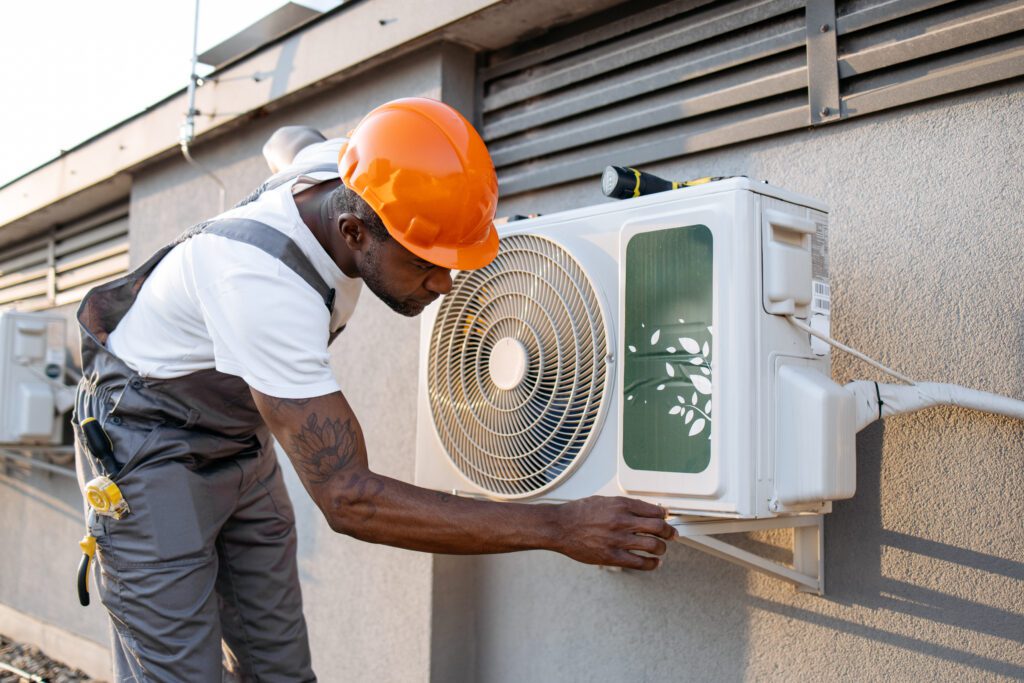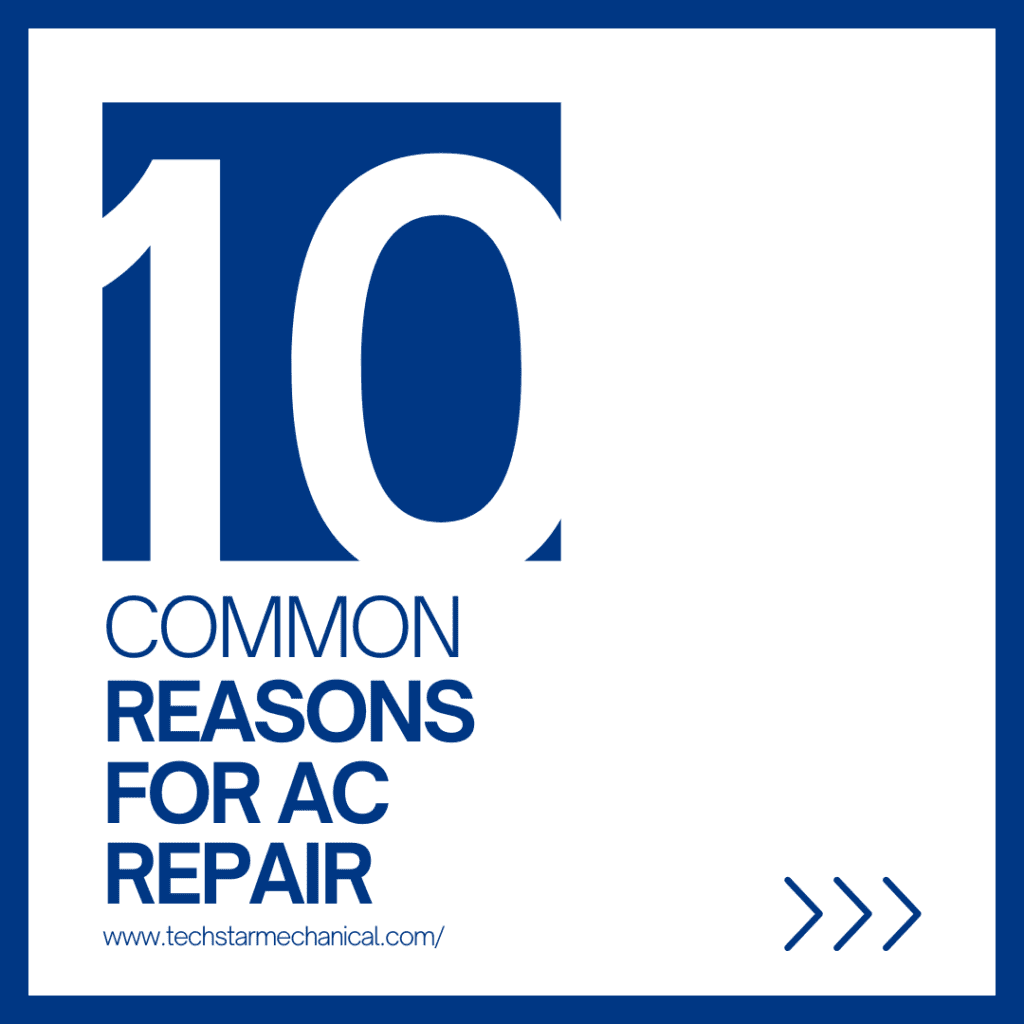Having a well-functioning air conditioning (AC) system is essential for maintaining a comfortable home environment, especially during the hot summer months. However, there are various issues that can arise, leading to the need for AC repair. In this article, we will explore the Top 10 common reasons for an AC repair.
Understanding the Basics of AC Repair
Before diving into the specific reasons for AC repair, it’s important to have a clear understanding of the role an AC system plays in your home and the key components involved in its operation. By familiarizing ourselves with these basic concepts, we can better grasp the reasons behind common AC problems.
When it comes to the comfort of your home, the air conditioning system is a silent hero working tirelessly behind the scenes. Not only does it regulate the temperature, but it also controls humidity levels and ensures the air quality is optimal for you and your family. Without a properly functioning AC system, the scorching summer heat can make your home unbearable, affecting your well-being and overall enjoyment of your living space.
The Role of an AC in Your Home
An air conditioning system is responsible for regulating the temperature, humidity, and overall air quality within your home. It helps create a comfortable living environment, allowing you to escape the sweltering heat and breathe in cool, clean air. To achieve this, an AC system relies on a complex network of components working together.
Moreover, an efficient air conditioning system not only provides comfort but also contributes to your health by reducing indoor air pollutants and allergens. By circulating and filtering the air, it helps maintain a fresh and healthy environment, especially for those with respiratory issues or allergies. Understanding the pivotal role your AC system plays in your daily life can highlight the importance of regular maintenance and prompt repairs.
Key Components of an Air Conditioning System
Understanding the key components of an AC system will enable us to identify potential problems more effectively. The major components include the thermostat, refrigerant, compressor, evaporator coil, condenser coil, fan, and ductwork. Each of these components plays a vital role in the cooling process and can experience issues that require repair.
The thermostat serves as the brain of the operation, controlling when the system turns on and off to maintain the desired temperature. Refrigerant is the lifeblood of the system, absorbing and releasing heat to facilitate the cooling process. The compressor acts as the heart, pumping the refrigerant through the system, while the evaporator and condenser coils work together to transfer heat and cool the air. The fan circulates the air, ensuring consistent cooling throughout your home, while the ductwork distributes the conditioned air to different rooms. Understanding how each component contributes to the overall function of your AC system can help you troubleshoot issues and communicate effectively with HVAC professionals.
Identifying Common AC Problems

Now that we have a solid foundation of knowledge about AC systems, let’s examine some common problems that homeowners may encounter.
Understanding the intricacies of your AC system is essential for maintaining its optimal performance. By being aware of the common issues that can arise, you can take proactive steps to address them before they escalate into major problems.
Frequent Cycling and Inefficiency
One of the most noticeable signs that your AC system requires repair is frequent cycling or inefficiency. This means that your AC turns on and off more frequently than usual, or it fails to cool your space effectively. This can be due to various reasons, such as dirty filters, thermostat problems, or refrigerant leaks.
Moreover, inefficient cooling not only compromises your comfort but also leads to higher energy bills. Regular maintenance, such as cleaning or replacing filters, can help improve the efficiency of your AC system and prolong its lifespan.
Strange Noises or Smells
If you notice strange noises or smells coming from your AC system, it’s a clear indication that something is amiss. Rattling, buzzing, or grinding noises can indicate loose or damaged components, while unpleasant odors often point to mold or bacterial growth within the system. These issues should not be ignored, as they can potentially cause further damage if left unattended.
Furthermore, unusual odors emitted by your AC can also affect the air quality in your home, posing health risks to you and your family. Promptly addressing these issues with the help of a professional technician can ensure a safe and comfortable indoor environment.
Poor Airflow and Cooling Issues
Airflow and cooling problems can manifest in various ways. You may notice weak or inconsistent airflow from your vents, resulting in uneven cooling throughout your home. Insufficient cooling can occur due to clogged filters, ductwork problems, or malfunctioning fans. Addressing these issues promptly is crucial to restore the comfort of your living space.
Additionally, poor airflow not only affects the temperature in your home but also puts a strain on your AC system, potentially leading to more significant issues over time. Regularly inspecting and maintaining your ductwork and vents can help ensure proper airflow and efficient cooling throughout your living space.
Detailed Breakdown of Top 10 AC Repair Reasons

Reason 1: Dirty or Clogged Filters
Dirty or clogged filters can significantly impact the performance of your AC system. Over time, dust, debris, and other particles accumulate on the filters, obstructing the airflow and reducing the system’s efficiency. Regularly changing or cleaning the filters is a simple task that can prevent more serious issues.
Reason 2: Thermostat Problems
The thermostat is the control center of your AC system. If it malfunctions, it can lead to inaccurate temperature readings, improper cooling cycles, or a complete failure of the system. Battery issues, sensor problems, or wiring faults are common culprits behind thermostat problems.
Reason 3: Refrigerant Leaks
Refrigerant leaks can occur due to cracks, holes, or faulty connections within the system. Insufficient refrigerant levels can cause your AC to blow warm air or fail to cool your home effectively. If you suspect a refrigerant leak, it’s important to have it repaired by a professional promptly.
Reason 4: Drainage Issues
Your AC system relies on proper drainage to remove excess moisture. Over time, clogs or blockages can develop in the condensate drain line, causing water to back up and potentially damage your unit. Regular maintenance, including cleaning the drain line, can help prevent drainage issues.
Reason 5: Sensor Problems
Sensors within your AC system help regulate temperature and control the cooling cycles. If these sensors become inaccurate or faulty, your system may cycle on and off at inappropriate times or fail to maintain the desired temperature. Cleaning or recalibrating the sensors should resolve such issues.
Reason 6: Electric Control Failure
Electric control failure can occur due to wear and tear, power surges, or faulty wiring. If the electrical components responsible for controlling the system’s operation malfunction, your AC may stop working or exhibit erratic behavior. Only a trained technician should handle electrical repairs to ensure safety.
Reason 7: Condenser Coil Problems
The condenser coil, located in the outdoor unit, is responsible for removing heat from the refrigerant. Over time, the coil can become dirty or damaged, hindering heat transfer and reducing the efficiency of the system. Regular maintenance, including cleaning the condenser coil, is crucial to prevent problems.
Reason 8: Evaporator Coil Issues
The evaporator coil, housed in the indoor unit, absorbs heat from the air to cool it down. If the coil becomes dirty or frozen, it can restrict airflow and impede the cooling process. Regular maintenance and cleaning of the evaporator coil can help avoid such issues.
Reason 9: Fan Problems
Both the outdoor and indoor units have fans that facilitate airflow. Issues with these fans, such as a broken motor or faulty blades, can result in poor airflow, inefficient cooling, or even complete system failure. Promptly addressing fan problems is crucial to avoid further damage to the system.
Reason 10: Ductwork Problems
The ductwork transports cooled air from the AC system to different areas of your home. Damaged or leaky ducts can lead to air loss, resulting in inefficient cooling and higher energy bills. Sealing or repairing the ductwork can help restore proper airflow and efficiency.
In addition to the top 10 reasons for AC repair, there are a few other factors that can contribute to the performance and longevity of your AC system. One such factor is the age of your unit. Older AC systems may be more prone to breakdowns and require more frequent repairs. It’s important to consider the age of your system and consult with a professional to determine if it’s time for a replacement.
Another factor to consider is the quality of the installation. A poorly installed AC system may experience more issues and require more repairs. It’s crucial to hire a reputable and experienced HVAC contractor to ensure that your system is installed correctly and functions optimally.



